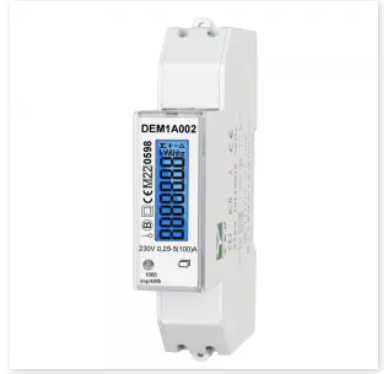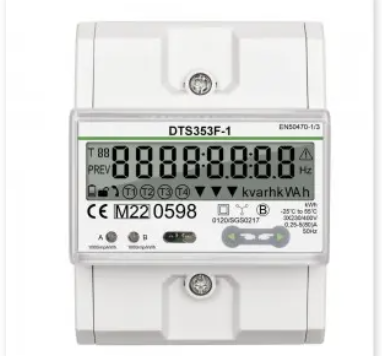In the realm of electrical power distribution, energy meters play a crucial role in accurately measuring and tracking electricity consumption. These devices are essential for businesses and households alike, providing valuable insights into energy usage patterns and enabling informed decision-making to optimize energy efficiency and reduce costs. However, when selecting an energy meter, one key decision lies in choosing between single-phase and three-phase models.
Delving into the Fundamentals of Single-Phase and Three-Phase Power Systems:
To understand the distinction between single-phase and three-phase energy meters, it’s essential to grasp the underlying principles of power systems:
Single-phase power systems: These systems deliver a single alternating current (AC) waveform, typically used in residential and small commercial settings.
Three-phase power systems: These systems provide three separate AC waveforms, each with a phase difference of 120 degrees, commonly employed in industrial and large commercial applications.
Single-Phase vs. Three-Phase Energy Meters— A Comparative Analysis:
The choice between single-phase and three-phase energy meters hinges on the specific power system requirements and the desired level of metering capabilities:
Application: Single-phase energy meters: Suitable for single-phase power systems, typically found in residential homes, apartments, and small businesses.
Three-phase energy meters: Designed for three-phase power systems, commonly used in industrial settings, large commercial buildings, and data centers.
Metering Capabilities:
Single-phase energy meters: Measure the total energy consumption of a single-phase circuit.
Three-phase energy meters: Can measure the total energy consumption and individual phase-wise energy consumption, providing a more detailed analysis of power usage.
Additional Considerations:
Cost: Single-phase energy meters are generally less expensive than three-phase meters.
Complexity: Three-phase meters are more complex to install and maintain due to the multiple phases involved.
Choosing the Right Energy Meter: A Practical Guide
The selection of an appropriate energy meter depends on various factors:
Power system type: Determine whether a single-phase or three-phase system is in use.
Metering needs: Assess whether total energy consumption or individual phase-wise metering is required.
Budget: Consider the cost implications of different meter types.
Technical expertise: Evaluate the availability of qualified personnel for installation and maintenance.
JIEYUNG— Your Trusted Partner in Energy Meter Solutions
With a comprehensive range of energy meters, including single-phase and three-phase models, JIEYUNG is committed to providing tailored solutions that meet the diverse needs of businesses and households.
Contact JIEYUNG today and experience the transformative power of our energy meters. Together, we can optimize energy usage, reduce costs, and promote a more sustainable future.

Post time: Apr-30-2024



